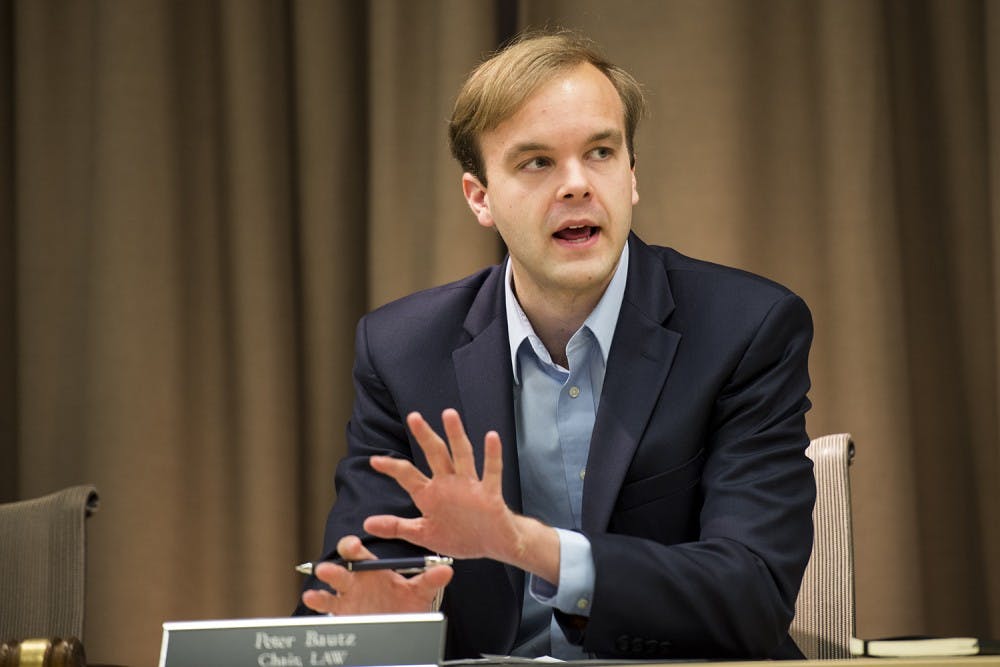The University Judiciary Committee met Sunday night to hear a presentation on free speech, its relationship to hate speech and how they both may affect the UJC’s work in the University.
Peter Bautz, a Law student and UJC chair, introduced the meeting by explaining the purpose of having the guest speaker Law School Vice Dean Leslie Kendrick, a specialist on First Amendment free speech issues, talk to the Committee.
“I’ve asked her to come and talk to us about free speech in higher education for when the UJC cases ... have to deal with hate speech,” Bautz said.
Kendrick opened her presentation with an explanation of what hate speech is and the debate over its protection under the First Amendment.
“There’s not really a definition of hate speech,” Kendrick said. “It’s not a legal category. Some people out there say that hate speech is a crime and it’s not protected by the First Amendment. That’s not true.”
There are many definitions of hate speech used by different people, but what one person finds insulting may not be hateful to another, according to Kendrick.
“Speech that denies the fundamental basic equality of all people,” Kendrick said in describing how she views hate speech. “That speech could be insulting, but can also be coldly rational.”
There are different small categories of regulated speech under the law according to Kendrick, but the line between protected and unprotected speech remains vague and interpretive.
“Instead of having an idea of hate speech, you have a lot of these little discrete buckets,” Kendrick said.
The UJC, as a governance system in the University, is a state actor, meaning its actions are subject to First Amendment restrictions. Students, however, are not held to the same requirement.
“The First Amendment only constrains state actors,” Kendrick said. “Only when an actor is the government does the First Amendment really apply [legally].”
The First Amendment constrains how the University and government are able to regulate student’s speech and how the bodies interact with students.
“The students themselves are not state actors, but how the students are dealt with and how their speech is regulated will involve the university which is a state actor,” Kendrick said.
In the University setting, things get even more complicated, as every student must be assured equality according to Kendrick.
“There are places in an educational context where individual comments that would be perfectly acceptable out in the world can become a problem in an educational context,” Kendrick said. “When we’re talking about education, it's very important that the rights of equality are assured to everyone.”







